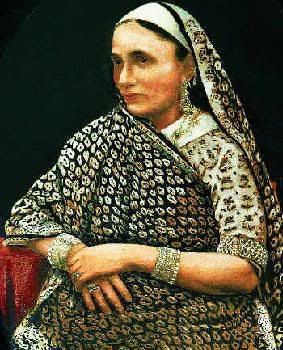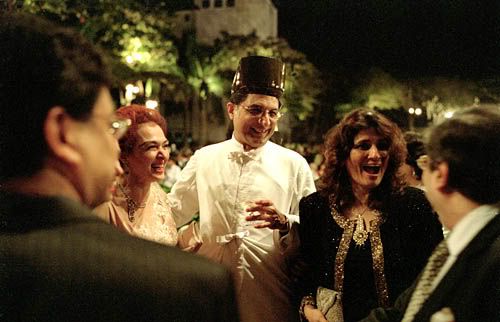 " -Discussions welcomed from experts in ethnic issues, anthropologists and those interested, on how issues like rapid decline of population are tackled. Please read this full arcticle on Google Earth Community to learn more about this remarkable community who have survived this far, with great achievements and productive contributions to people around them. Freddie Mercury and Zubin Mehta and UK based Cobra Beer Lord Karan Billimoria are Parsis.
" -Discussions welcomed from experts in ethnic issues, anthropologists and those interested, on how issues like rapid decline of population are tackled. Please read this full arcticle on Google Earth Community to learn more about this remarkable community who have survived this far, with great achievements and productive contributions to people around them. Freddie Mercury and Zubin Mehta and UK based Cobra Beer Lord Karan Billimoria are Parsis. 






2001 census in India put Parsis (Parsees) at 69,600। There are some 35,000 or 40,000 additionally, mainly in USA, UK, Canada, Australia, New Zealand and Europe. Population estimates in India expect Parsis to come down to 20,000 by 2020. Apart from the UNESCO sponsored PARZOR (Parsi-Zoroastrian) project which is documenting the old Parsi traditions, there is no international-- nor at any other level-- effort (including within the miniscule community) to reverse the declining population.
This the story of a people, who out of a steadfast love of their identity, religion, beliefs, customs and ancient traditions and much more that goes to forming a people/nation, decided they would rather find refuge in a new land, than give up all that was precious and invaluable to them.
These were the Persian Zoroastrians, who after the debacle of the Sassanid Empire and the victory of the Arab conquerors, found they had lost king and country. After the defeat of the Sassanid armies at Qadisiyyah in 636 A.D.( link ) and at Nehavand in 641 A.D.( link ) and the last Sassanid king, Yezdegerd III murdered in 651 A.D.(see the Conquest of Persia here) the way was open for the Arabs, and the Persian Zoroastrian Empires became a thing of the past. (Very ironically, Yazdegerd's son Pirooz became a very senior general in the Chinese army and was allowed by the Chinese Emperor to maintain a court in exile, a sort of king in exile.-( link )
Of the estimated 100,000 Parsis (Parsees) worldwide, some 65,000 live in Mumbai, India; although they live all accross the city, in some of the posh localities and otherwise, they are also to be found in Baugs (enclosed housing with lawns and other facilities-club, gymnasium, playgrounds); Cusrow Baug (see pictures below.) in south Mumbai, running along Colaba Causeway, adjacent to "BEST Electric House" and walking distance from the Taj Mahal Hotel. Facts on Mumbai/Bombay:http://en.wikipedia.org/wiki/Mumbai
Below: Cusrow Baug, a Parsi housing with enclosed lawns, gardens, club and gymnasium etc.




2 comments:
With due respect, may I try to introduce the subject of conversion in the Parsi community.
A lot has been said about the reduced number of Parsis, but not many broach the subject seriously.
I would appreciate if some of you come forward and indulge in real erudite manner and contribute your views on accepting people from countries like Kurdistan, Iran, Tajikistan, Uzbekistan and Russia. How about presenting the subject on the UTube and attracting their attention and invite them to contribute their views on the subject.
Having introduced this controversial subject, I beg to leave your very well presented theme on the Parsis, till I hear from you.
Best regards,
Hormuzd
Hi Anonymous,
by now a very certain but silent concensus has been reached everywhere, except amongst orthodox Parsis, that the population crunch is effecting Parsism, not Zoroastrianism.....we cannot stop others claim to be Zoroastrian, we, i. e. Parsis, can only stop them from "co-habiting" with us i.e. sharing our benefits or entering our temples and towers of silence.
If these numbers of Zoroastrians from other regions increase dramatically, their sheer numbers will make world almanacs recognise them as Zoroastrians.....and it might just get said that the Parsi wing of Zoroastrians is reducing or is endengered.....so we Parsis have to find ways to increase our population.
Dynamic leaders who all others in the community cooperate with.....every every every young Parsis' self resolve to marry and have children........massive productive cooperation in the community to set up means where young males will find females in the community........all this resolve has to come from us ourselves......
etc
Geve
Post a Comment